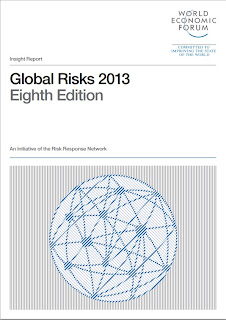Romeo Taneo, right, 39, a fisherman in Masinloc, discusses his loss of income because of the Chinese presence at Scarborough Shoal. (Photo: Thomas Maresca)
China has been dispatching ships and aircraft to enforce its ownership of the South China Sea, infuriating Asian nations whose coastlines also approach the sea.
MASINLOC, Philippines -- Romeo Taneo, 39, has been going to Scarborough Shoal for as long as he can remember.
The rich schools of fish such as tuna found along the chain of reefs and rocks 124 miles from shore have been fished by the people of this Philippine town for centuries. But the 2,000 fishermen of Masinloc haven't gone there in months, not since Chinese vessels arrived to claim the shoal for China even though its coastline is 500 miles away.
"We can't fish there anymore," Taneo said. "Whenever we go near, the Chinese chase us away."
China has essentially said it wants to chase every nation from the South China Sea. It has laid claim to 1 million square miles of the sea and in recent months has been dispatching ships and aircraft to enforce its ownership, infuriating Asian nations whose coastlines also approach the sea.
It's not just for the rich sources of fish that China and others are battling. The World Bank has estimated that the seabed contains huge deposits of oil and natural gas. The sea is a major route for the world's cargo (50% of global oil tankers pass through it). As Asia's economies and populations grow, the food source and the energy resources of the South China Sea will become even more important.
Confrontations that have already taken place between China and its neighbors over the sea could escalate and lead to war,observers of the situation say.
"The situation is quite worrying and we're watching it closely," said Stephanie Kleine-Ahlbrandt, China and Northeast Asia project director for the International Crisis Group. "The continuing presence of claimants' law enforcement and fishing vessels in disputed waters are opportunities for skirmishes that may bring countries down a path they didn't intend."
The shoal, a triangle of rocks about 35 miles around, is one of a number of outcroppings and islands in the South China Sea that the People's Republic of China says the Chinese discovered and claimed long ago. Scarborough is named for a British tea ship wrecked on its rocks in 1784 with no survivors.
In July, China proclaimed the creation of a Sansha, a new city on tiny Yongxing Island that would oversee jurisdiction of the Paracel, Spratly and Macclesfield Bank island groups scattered throughout the sea. In November, China issued passports with a map of China that included about 80% of the South China Sea.
Today it continues to protect Chinese fishing boats that fish shoal waters, even though the shoal is well within the Philippines' a 200-mile zone that all coastal nations can claim as exclusively theirs according to the United Nations Convention on the Law of the Sea.
Vietnam, Malaysia, Brunei, Taiwan and the Philippines have claims to parts of the sea, and some have complained to the United Nations and the USA for help in dealing with China's ownership announcement.
Tensions were high in April when the Philippines tried to act against China. Chinese vessels prevented a Philippine naval warship from pushing out Chinese fishing boats accused of poaching protected species such as sea turtles. Eventually both fleets agreed to go home. but Chinese marine surveillance vessels soon returned and remain. The vessels went as far as to rope off the entrance to Scarborough lagoon.
Caught in the geopolitical standoff are fishermen up and down Zambales, a province on the west coast of Luzon, the largest island in the Philippines.
"We're afraid to go to Scarborough now," said Francis Alaras, who has been fishing for 15 years out of Subic Bay. "Even the Coast Guard is afraid to go there."
Taneo said he used to take in $250 to $500 in a good week catching grouper, Spanish mackerel and tropical aquarium fish around Scarborough. Now he might earn $50 in waters nearer the coast. Some fishermen journey several extra hours to avoid the Chinese-occupied area, burning additional fuel and squeezing their ability to make a profit.
What puzzles many in Masinloc is the suddenness of the change. Taneo said fishermen from several countries used to fish at Scarborough without incident, at times even boarding each other's vessels to swap local delicacies and liquor.
"Why now?" he said.
Harry Roque Jr., a professor of law at the University of the Philippines, urged Manila to bring the Scarborough case before the U.N.'s International Tribunal on Law of the Sea, which could issue a binding provisional decision. China and the Philippines are both signatories to the treaty.
"It would be the perfect way to defuse the tension if there is in fact a provisional measure," Roque said. "Of course there's no guarantee China will comply with it, but I think it's very clear that in modern history no state wants to be branded a violator of international law."
Philippine Foreign Affairs Secretary Albert del Rosario has also called for international arbitration in the Scarborough standoff.
"While we are at a disadvantage in terms of our resources and capabilities, it is our belief that international law is the great equalizer and that right is might," he said.
A trader works at Subic Fish Port at dawn in Subic Bay, Philippines.(Photo: Thomas Maresca) China, however, has said it would not accept an international judgment and will only resolve the matter in one-on-one talks with individual countries, which its smaller neighbor the Philippines says puts it at a severe disadvantage.
The conflict has gotten the Philippines to turn for help to a former hated enemy, Japan, whose occupation of the Philippines during World War II is not forgotten here. Last week Japanese Foreign Minister Fumio Kishida pledged 10 patrol ships and communications equipment for the Philippines coast guard, according to media reports. Japan is fending off similar territorial claims that China his pressing over the Senkaku Islands in the East China Sea.
The United States has stayed neutral in the territorial disputes, saying only that they should be resolved through negotiation. The USA and the Philippines held discussions in December that del Rosario says should result in an increased naval rotational presence in the Philippines that "will serve to guarantee peace and stability in the region."
Murray Hiebert, deputy director at the Center for Strategic and International Studies, says U.S. interests lie most clearly lie in maintaining the unrestricted movement of trade in the South China Sea.
"Freedom of navigation is absolutely critical," he said. "A whole lot of oil and iPads move through there."
China shows little sign of backing down, however.
In November, the Chinese province of Hainan said it police vessels may board and search foreign ships that "illegally" enter Chinese waters.
"If China persists in its view that (the South China Sea) is a Chinese lake, then we're headed for conflict," Roque said. "And I think every single nation on earth that wants to use the seas will have an interest in it."
For now, solutions seem scarce. Some observers suggested that joint development of fishing and hydrocarbons in disputed areas is a reasonable way forward. But the charged environment is making cooperation increasingly difficult.
"If the political will were present, (joint development) would be possible," said Robert Beckman, director of the Center for International Law at National University of Singapore. "However, under the present political climate, it seems unlikely."
In Masinloc, the fishermen are looking to the future with a characteristically Filipino blend of fatalism and optimism. Masinloc's fishery officer, Jerry Escape, says people are looking at other ways to earn a living, such as establishing more fish hatcheries to increase fish stocks closer to shore and promote tourism of its pristine areas.
"We will find a way," he said. "We are Filipinos. That is what we do." (http://usat.ly/10hZOcB)
USA TODAY





















